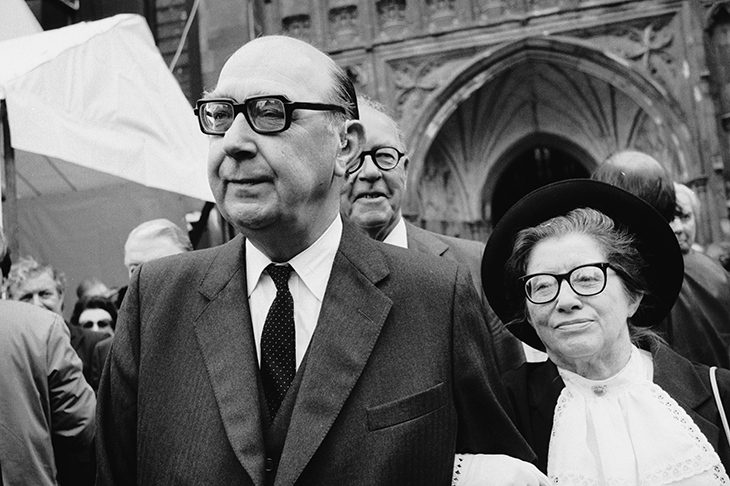By the time Philip Larkin died in 1985, he’d long since achieved national treasure status: his poems were critically admired as well as widely read; his reticence (‘the Hermit of Hull’) was a matter of affectionate respect; and his cantankerous published remarks about ‘difficulties with girls’, children, left-wing politics, and ‘abroad’ were generally embraced as proof of valiant individualism — or possibly a grouchy kind of joke. Thirty-five years later, after the publication of biographies and his previously private correspondence, his reputation is not so much changed as turned on its head: the outbursts of racism and misogyny that are splattered through his letters have for many readers cast a sickening pall over the poems, and for others led to his outright cancellation. Hull City Council is presently considering a proposition to remove his statue from the concourse of the city’s train station.
There are signs that John Sutherland began his book in an upbeat and pioneering spirit, wanting to rescue Larkin’s longest-lasting love, Monica Jones, from the comparative neglect in which she’s languished up to now; to do for her, in fact, a version of the job that Clare Tomalin did for Ellen Ternan’s role in the life of Charles Dickens. By the end, having read his way through most of the 54 (54!) boxes of Jones’s correspondence that were deposited in the Bodleian Library following her death in 2001, 16 lonely and devastated years after Larkin’s own death, it’s hard not to feel that a part of him wishes he hadn’t made the effort. While he succeeds in presenting Jones as more than simply Larkin’s ‘dim correspondent shadow’, he also establishes the facts of her own ‘racism, spite, foul-mouthed lapses, shared misogyny and acidic streams of downright nastiness’. ‘I have written the book,’ he says, ‘in a shaken spirit.







Comments
Join the debate for just £1 a month
Be part of the conversation with other Spectator readers by getting your first three months for £3.
UNLOCK ACCESS Just £1 a monthAlready a subscriber? Log in